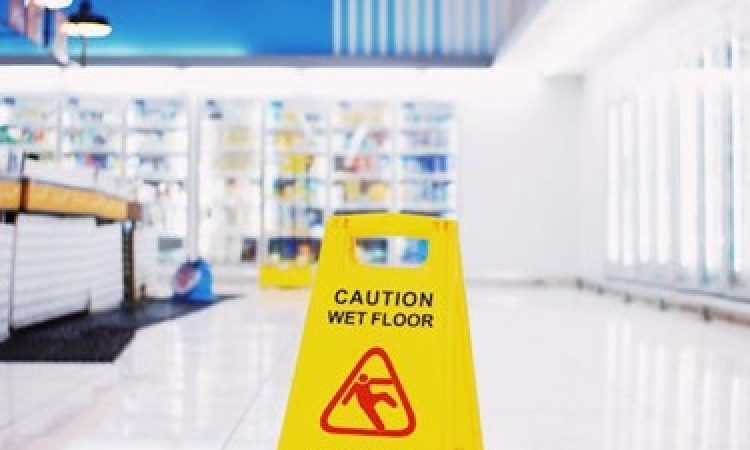
Accident at Work Claims
Have You Suffered an Injury at Work? Let Hopkins Solicitors Stand by Your Side.
Don’t Face This Challenging Journey Alone—Your Rights and Well-being Are Our Top Priority, and We’re Here to Secure the Compensation You Deserve.
The aftermath of an accident at work can leave you facing not only physical pain but also emotional and financial strain. You’re more than a case to us; you’re a person in need of support and justice. With Hopkins Solicitors, you gain a partner who deeply understands the impact of your situation.
Why Partner with Hopkins Solicitors for Your Workplace Accident Claim?
- Specialised Expertise: Our team is not just experienced in legal representation but specialises in accident at-work claims, vibration injuries, asbestosis, and noise-induced hearing loss, ensuring you receive knowledgeable and effective advocacy.
- Comprehensive Support: We pride ourselves on a client-first approach, offering personalised guidance and unwavering support through every step of your claim process, from understanding your rights to gathering crucial evidence.
- No Win, No Fee: Worried about legal fees? Our commitment to accessibility means you won’t owe us a penny unless we win your case, lifting the financial burden from your shoulders.
Are You Ready to Assert Your Rights?
Don’t let uncertainty or the complexity of legal procedures deter you. Hopkins Solicitors is dedicated to providing clear, compassionate, and customised solutions that recognise the uniqueness of your situation.
Accidents at work can happen unexpectedly, causing disruption and uncertainty in your life. However, it’s essential to recognise that you have rights and options available to you. We specialise in guiding individuals through the complex process of accident at-work claims. We ensure that they understand their rights and receive the support they need.
Understanding your rights is the first step. It’s about knowing what counts as an accident at work and what you need to make a successful claim. Our team is here to help you understand these things and to give you expert advice that fits your situation.
We know how important it is to understand what you’re entitled to and what steps you need to take. Whether you’re not sure if your accident qualifies for compensation or you’re unsure about what to do next, we’re here to guide you every step of the way.
With our experience in handling accident at-work claims, you can trust us to stand up for you. We’ll fight hard to protect your rights and make sure you get the compensation you deserve. So, if you need help, don’t hesitate to get in touch with us for a consultation. Let us help you through this tough time with confidence.
What Constitutes an Accident at Work?
Accidents at work cover a range of unexpected incidents that happen while someone is doing their job.
Common types of work accidents include:
- Slips and trips
- Injuries from manual handling
- Falls from height
- Accidents involving machinery or vehicles
For an accident to qualify for a claim, it needs to meet specific legal criteria. This usually means showing that the accident was caused by negligence or a breach of duty by the employer.
This could be due to factors such as:
- Not having proper safety measures
- Not providing enough training
- Not keeping equipment in good condition
At Hopkins Solicitors, we know how important it is to understand what counts as an accident at work and what’s needed to make a claim. Our team is here to provide clear and expert guidance to anyone who’s been injured on the job. We’ll make sure you understand your rights and options for getting compensation. We’ll be sure to fight hard to get you the support and justice you deserve.
Vibration Claims
Using vibrating machinery in the workplace, such as road drills and tools, can cause health problems. The parts of the body which can be affected are the hands, fingers, elbows and in some cases, the entire arm.
Using vibrating machinery over long periods of time can cause these parts of the body to go white, also known as blanching. It can also cause numbness, pain and pins and needles. A loss of grip is often a common side effect alongside being unable to use the hand or arm affected due to severe pain.
Vibration injuries can affect your life in many ways. You may find you are no longer able to do a manual job or your leisure activities. You can also lose money as a result of this.
You may find that your symptoms are worse in the cold weather and that they are less severe in the summer months. Light exercise and keeping warm are ways to help reduce the symptoms in short term. However, you should seek legal advice as you may be entitled to compensation.
If you are worried that you may have been affected by using vibration machinery at work and think you may be entitled to compensation please contact our specialist team today.
Asbestosis Claims
Asbestos was used in many industrial jobs from 1945 through to 1999 before the substance was completely prohibited. For thousands of workers employed in the shipyards, railways, textile mills, car assembly plants, construction and many other industries where blue, brown and white asbestos was extensively used, the mounting evidence of detrimental effects was kept hidden.
The horrific consequences only came to light up to 50 years later when the first mesothelioma or asbestosis symptoms started to appear.
When asbestos is disturbed, it releases small particles of fibre that, when inhaled, are extremely hazardous to our health. These particles can cause scarring in the lungs causing inflammation that can lead to a mass developing. It can cause breathing difficulties and chest pain. Often people who get asbestosis are more likely to develop lung cancer, also known as mesothelioma.
Signs and Symptoms of Asbestosis:
- Shortness of breath
- A tight chest
- Tiredness
- Coughing or wheezing
If you have been subjected to working with asbestosis and have any of the following symptoms seek medical advice and contact our specialist team to help get you the compensation you deserve.
Deafness Claims
Noise-induced hearing loss is caused as a result of being exposed to high levels of noise for long periods of time, which often happens in the workplace in industrial jobs such as factories. Your employer has a legal duty to supply you with the correct hearing protection to protect you against hearing problems.
If your place of work runs loud machinery and you do not have the correct protection your hearing may suffer as a result. The level of noise which is bad enough to affect someone’s hearing can vary from person to person, however, there are guidelines as to how loud noise should be before it would be considered a risk to someone’s hearing. The length of time you are subject to the noise can also make a difference to your hearing.
Locations Where Noise-Induced Hearing Loss Is Likely:
- Factories
- Building sites
- Industrial units
- Military bases/other related locations
Eligibility Criteria for Making a Claim
When you’re thinking about making a claim after a work accident, there are a few things you need to consider. First off, what kind of job do you have? Whether you work full-time, part-time, or you’re a contractor can affect whether you can claim compensation. Also, you need to be aware of time limits. If you wait too long to file your claim, you might miss out on getting compensation. That’s why it’s crucial to act fast and not delay. At Hopkins Solicitors, we’re here to help you navigate all of this. We’ll look at your situation and figure out if you’re eligible to make a claim. We’ll take a close look at what happened, what your job is, and how much time has passed since the accident. Our goal is to give you clear advice and support so you can get the compensation you deserve.
Our role is to evaluate your eligibility for making a claim. We carefully assess the details of your case. Our team of professionals will consider everything from the circumstances to the evidence. We aim to provide you with clear and straightforward advice tailored to your situation. We’ll work closely with you to understand your rights and options. We will ensure you have the support you need to pursue your claim successfully.
Reporting Your Accident – The First Crucial Step
After a work accident, the first thing you need to do is report it. Your workplace will have specific steps for this. Usually, you’ll need to tell your boss right away and fill out any forms they provide. Quick reporting ensures everything is documented properly, which is vital for your claim.
The accident book is a key part of this. It’s where all accidents at work get recorded. It gives a formal record of what happened, when it happened, and any injuries. This record is essential for your claim as it provides detailed information and shows who’s responsible.
Getting medical reports is also crucial. It’s important to see a doctor after an accident, not just for treatment but also to get medical records. These reports show how badly you were hurt, what treatment you got, and any ongoing medical needs. They’re important evidence for your claim.
Citizens Advice gives helpful advice on how to document the incident. They will advise you to gather as much information as possible. This includes, how the accident happened, if anyone saw it, and any photos or evidence. Keeping a record like this makes your case stronger and ensures you have proof for your claim.
Collecting Evidence and Witness Accounts
Building a strong case for your work accident claim requires collecting evidence. This includes getting various types of evidence like photos of the accident scene, equipment involved, or your injuries. Witness accounts are also helpful, so make sure to get contact details from anyone who saw what happened.
Detailed documentation is crucial too. Keep records of medical reports, accident reports, and any related correspondence. This not only strengthens your case but also ensures all important details are preserved for future reference.
At Hopkins Solicitors, we understand how important evidence gathering is in work accident claims. Our experienced team can assist you with this process. We’ll help you identify the evidence needed and guide you on how to collect it effectively. Whether it’s arranging expert assessments, getting witness statements, or securing additional documentation, we’re here to help.
By choosing Hopkins Solicitors, you can trust us to handle all aspects of evidence gathering. We will conduct it with professionalism and attention to detail. Our goal is to gather compelling evidence that strengthens your claim. We want to increase your chances of getting the compensation you deserve.
Claiming Compensation – What You Need to Know
When claiming compensation after a work accident, it’s important to understand the process. There are different types of compensation available. For example, money for injuries and reimbursement for lost earnings. Knowing what you can claim for ensures you get fair compensation.
The process of filing a claim involves several steps. You need evidence to support your claim, such as medical records and witness statements. Once you have everything, you submit your claim to the relevant authority or insurer. It can be complicated, but having experienced legal help like Hopkins Solicitors makes it easier.
At Hopkins Solicitors, we’re experts in getting fair compensation for our clients. We know work accident claims inside out and can build strong cases for you. We’ll work hard to gather evidence, negotiate with insurers, and fight for your rights. With us on your side, you can trust we’ll do everything we can to get you the compensation you deserve.
No Win, No Fee – Understanding the Financial Aspects
Understanding the money side of making a claim after a work accident is important. ‘No win, no fee’ agreements mean you don’t pay legal fees if your claim fails. It makes getting compensation more accessible for many people.
But there might still be other costs to think about when making a claim. Even with a ‘no win, no fee’ agreement, you might need to pay for court fees or expert reports. Hopkins Solicitors believes in being clear about money matters. We give simple, honest advice about any potential costs upfront, so you know what to expect.
With us, you’ll get the help you need to understand the financial side of making a claim. We’ll explain ‘no win, no fee’ agreements clearly and talk about any other costs involved. Our aim is to make everything easy to understand, so you can focus on getting better while we handle the legal stuff.
The Role of Legal Support in Accident at Work Claims
Having professional legal advice is essential for accident at work claims. A solicitor can simplify and strengthen your claim. They know the legal system and can guide you through it.
At Hopkins Solicitors, we focus on you. We understand each case is different, so we tailor our approach to your needs. From start to finish, we offer personalised care. Our team works hard to gather evidence, negotiate with insurers, and fight for your rights.
With us, you get the support you need to navigate accident-at-work claims. We make the process clear and simple, so you can focus on getting better. Our aim is to take the stress out of the legal side of your claim, leaving you free to concentrate on recovery.
How Hopkins Solicitors Can Help You
Hopkins Solicitors is here to assist individuals dealing with work-related accidents. We offer specialised services tailored specifically to these situations, ensuring personalised support for each client. We understand that every case is different, so we take a unique approach to address your needs.
When you choose Hopkins Solicitors, you can expect dedicated assistance. We’ll listen carefully to your story, assess your situation thoroughly, and create a plan that suits you best. Whether your injuries are minor or severe, we’ll fight for your rights and fair compensation.
To get started with your claim, all you need to do is schedule a consultation with us. In this meeting, our experienced team will review your case, explain your options in simple terms, and answer any questions you have. We’ll also provide our contact details and guide you through the next steps.
With Hopkins Solicitors, you can rely on our expertise and commitment to support you throughout the process. We aim to make things as easy as possible for you, ensuring clear communication every step of the way. Reach out to us today to begin your journey toward obtaining the compensation and justice you deserve.
Conclusion
To sum up, it’s important to remember the key points we’ve discussed. Knowing your rights, understanding what counts as a work accident, and getting professional legal help are crucial steps in making a successful claim. Also, gathering evidence, reporting your accident quickly, and understanding the financial side of things can really make a difference in your case.
We urge you to take action promptly if you’ve had a work-related accident. Time limits may apply, so don’t wait to get the help you need to protect your rights and get fair compensation. At Hopkins Solicitors, we’re here to support you through it all.
Get in touch with us today for a chat, and let our friendly team guide you through the process. With our experience and dedication, you can trust us to work hard for you and make sure you get the help and compensation you deserve.
FAQs
What qualifies as an accident at work?
An accident at work is any unexpected event that happens while you’re on the job and leads to injury or harm. This can include slips, trips, falls, machinery accidents, or exposure to harmful substances.
How long do I have to file a claim after a work-related accident?
The time limit for filing a claim after a work-related accident can vary depending on where you are and what happened. It’s important to act quickly because there are usually strict deadlines. Getting legal advice as soon as possible is a good idea to make sure you don’t miss any important deadlines.
What types of compensation can I get for a work injury?
Compensation for a work injury can cover things like medical bills, lost wages if you can’t work, money for pain and suffering, and help with rehab costs. What you get depends on how badly you were hurt and what happened.
How much does it cost to hire a solicitor for a work accident claim?
Lots of solicitors, like Hopkins Solicitors, offer a deal where you only pay if you win your case. That means if you don’t win, you don’t pay. If you do win, the other side usually pays your solicitor’s fees or takes the money from your compensation.
What should I do right after a work accident?
If you’re hurt at work, get medical help right away and tell your boss what happened. Make sure to keep any papers from the doctor and write down what happened. Taking these steps fast can help protect your rights and make sure you get the help you need.
Request a Callback
"*" indicates required fields
Meet the Team
Testimonials
-
Informed me all along the way on how my claim is doing and always answers any questions I have
Jacqueline Bouvier-Perry, 22nd April 2024
-
Michal was great, he listened to me and he was understanding all the time. I could not have asked any better.
Mr Turville, 12th February 2024
-
I went to Hopkins Solicitors for some help and advice about a work place injury and loosing said job because of this. Danielle is the lovely young lady I had the pleasure of working alongside in the business part of my claim. She has been nothing but supportive throughout the time of us working with one another. Every question and bit of advice I have asked always gets a timely response with the help that I am in need of. Danielle has a great wealth of knowledge and it shows within the work and care that's shown to the people that are lucky to have her looking after their case. If in the future I ever have any need for a solicitor again I will most definitely be going back.
Kirsty Bowler, 18th September 2023
Related Articles
-

What is the Occupiers Liability Act 1957- a basic overview
Accidents which take place on property or land owned by somebody else are called Occupiers Liability Claims and they are…
-

What can I claim for personal injury?
After a personal injury as a result of an accident at work, a car accident, or a slip/trip accident, along…



